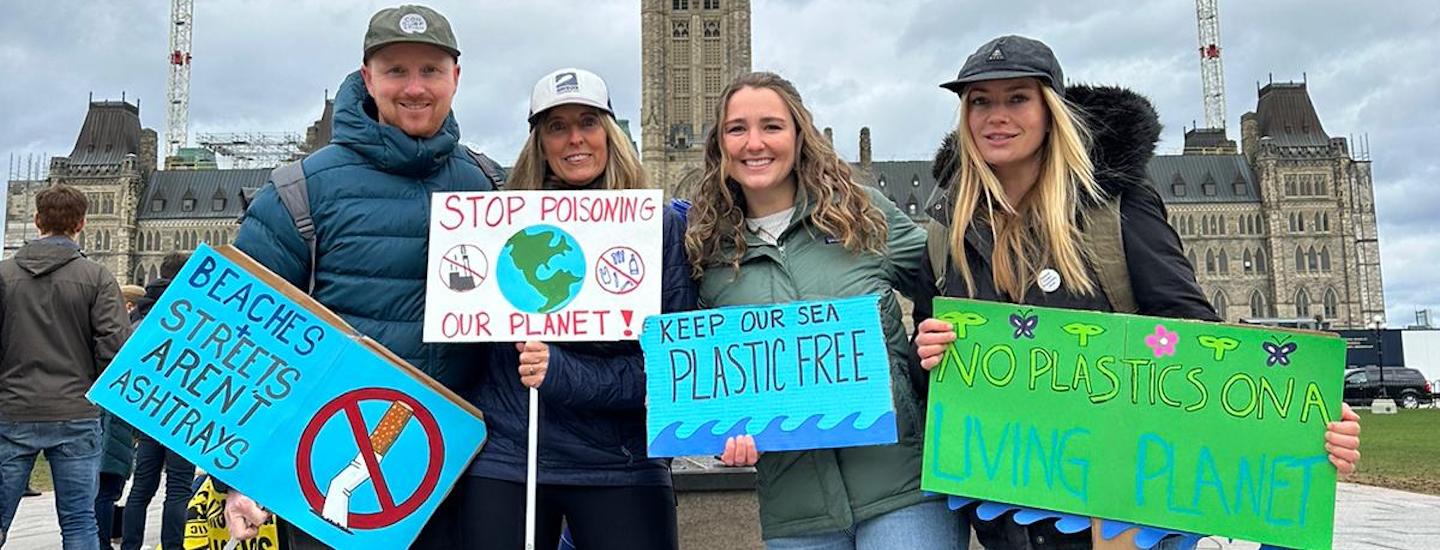
In unexpected-but-welcome news last week, a potential global solution to the plastic pollution problem received a big boost from a surprising source: the United States government. Throughout the first four International Negotiating Committee (INC) meetings, the U.S. delegation has refrained from advancing the kind of strong, mandatory measures within the United Nations’ Global Plastics Treaty that anti-pollution advocates have asked for, but now, a few months ahead of the final negotiating session (INC-5), the White House has shifted to a far more promising position.
Specifically, the U.S. delegation is stepping up leadership on three key issues:
- Calling for a legally binding global limit on plastic production, a shift from prior calls to leave voluntary goals up to each country, focus on pushing for increased recycling, and improve packaging design;
- Creating a global list and criteria to phase out types of plastic that have a particular adverse impact on human health and the environment, and could be avoided through elimination, reuse, or replacement, collectively known as particularly “problematic plastics”;
- Creating a global list and criteria to phase out “chemicals of concern” due to their high toxicity and potential to migrate or be released from plastics including specific flame retardants, certain UV stabilizers, per- and polyfluoroalkyl substances (PFASs), phthalates, bisphenols, alkylphenols and alkylphenol ethoxylates, biocides, certain metals and metalloids, polycyclic aromatic hydrocarbons, and many other non-intentionally added substances (NIAS).
While the U.S. has yet to make a formal announcement, following reporting by Reuters announcing the shift, State Department spokesperson Wren Elhai confirmed to The Hill on Thursday that Reuters’s reporting was accurate. The new stance follows a recent White House interagency report and affirms the Administration’s 2023 strategy to reduce plastic pollution nationwide.
Surfrider Foundation’s Plastic Pollution Initiative Senior Manager Jennifer Savage responded to the news with the following statement:
“This is truly huge and exciting news in the fight to stop plastic pollution at the source across the world! Surfrider’s vast network of grassroots activists has been fighting to stop plastic pollution for decades, cleaning up hundreds of thousands of pounds of trash off our beaches and successfully passing more than 300 policies to stop the flood of single-use plastics into our ocean. We’re heartened to see the federal government reflect what the majority of Americans have been calling for: an end to the harm being done to our ocean, our health, and the climate by the toxic and unsustainable outpour of single-use plastic products into our environment.
“In addition to the myriad human and wildlife health impacts caused by plastic, limiting global warming will require a 75% reduction in plastic production. Given the political influence and role in consumption held by the United States, this decision to truly commit to a treaty that could make a tangible improvement in all of our lives is most welcome. Surfrider will continue to support all efforts leading to the strongest Global Plastics Treaty possible.”
Read more about Surfrider's international advocacy work on the Global Plastics Treaty here.
